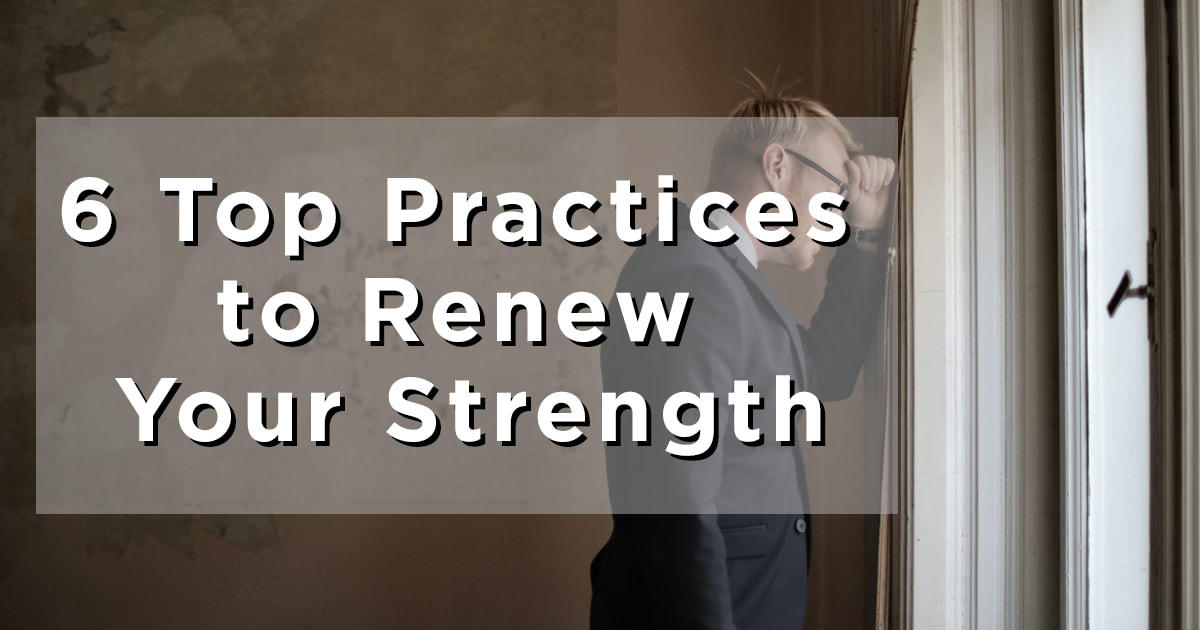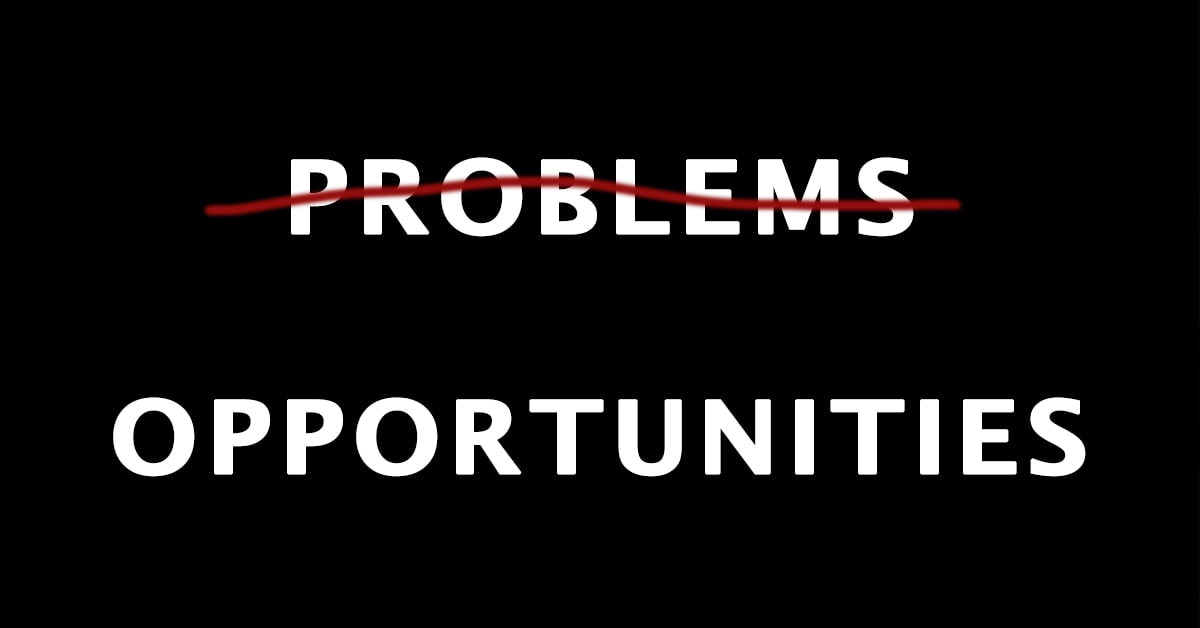|
FIND TIME Most of us would probably like a few more hours each day. Unfortunately, we will never get a 26-hour day. We only get 24. God has given everyone on the planet the same amount each day. Because we will never have more than 24 hours, we must be wise with our time. The Apostle Paul challenges us in Ephesians 5:16 to make “the best use of the time”. Being wise with our time means not wasting it. This doesn’t mean leisurely activity is wrong. Rest and leisure can be very helpful. Being wise with our time means being intentional. It is using wisdom to determine how we will use our time, and not allowing ourselves to be lazy or unproductive. The amazing thing is that when we use our time wisely, we often begin finding time that we were unaware of! When we begin finding time in unexpected places, and intentionally using it, big things happen. It has been my observation that most people get ahead during the time that others waste. - Henry Ford Consider this analogy: Every minute of our day is like a thread. Individually, each thread is weak. We can only pull a small amount of weight with a single thread. However, the more threads we weave together the stronger it becomes. If we weave enough threads together into a rope, we could pull an ocean liner. Our life is the same. If our time is divided in 1,000 directions, we can only move 1,000 small things. If we weave together our threads of time (and don’t waste them), our lives can make a big impact. What kind of rope are you weaving? To Find Time, start by asking this question: What parts of my day could be spent differently? Here are some ideas:
What are you good at?
I mean, really good at? What are your gifts? God has gifted everyone differently. "Having gifts that differ according to the grace given to us, let us use them: if prophecy, in proportion to our faith; if service, in our serving; the one who teaches, in his teaching; the one who exhorts, in his exhortation; the one who contributes, in generosity; the one who leads, with zeal; the one who does acts of mercy, with cheerfulness.” (Romans 12:6-8). Having a gift is one thing, using it is another. Using your gifting maximizes your God-given potential. This applies whether we are using our spiritual gifts or natural abilities. Proverbs 18:16 says: “A man's gift makes room for him and brings him before the great.” We are each gifted in some areas but not in others. Because of this, not every use of your time is equal in value. Some uses of your time are more valuable because they produce greater results. An example of this is the 80/20 rule (or the Pareto principle). It states that approximately 80% of results come from 20% of actions. This means that some things you spend time on have a bigger impact than other things. The 80/20 rule helps determine where you can focus your efforts to maximize your outcomes. While the 80/20 rule isn’t a Biblical principle, it holds true very often. I believe a key reason why some of our actions produce greater results is because of gifting. When we use our gifts, we are far more productive with our time. Some things you do could easily be done by others. However, there are other things that only you can do. What are the things that only you can do? It may be a certain part of your ministry that can’t be delegated. It may be something that you are uniquely gifted and qualified to do. Once you answer the question, the next question you must ask yourself is this: How can I do MORE of my gifting? We all have things that we need to do outside of our gifting. There are parts of life and our job or ministry that we may not enjoy. However, if we can find time to regularly use our gifting just a little more, it can be very fulfilling. Here are a few ways to Save Time and Plan Time for the goal of using your gifting more: Is it possible to gain time?
I believe it is. Here's how: By investing time. We use time to make time. For example, reading this blog is a time investment, but you will gain time in the future by applying these principles. Let’s consider another example of investing. What do the rich do with their money? They invest. They invest in assets, not liabilities. Assets are things that either gain in value or produce passive income. Money that is invested multiplies and brings back many times as much. Investing makes money work for you by earning more money. As we saw in the last blog, just as money is a commodity, so is time. Time is a finite resource. No person on the planet has more minutes in the day, yet some people seem to have more time than others. Why? Some people seem to accomplish more. Why? Some people have an unhurried life. Why? Because they don't simply spend time, they invest it. They invest in time assets. Time assets are things that have a greater ROI (Return On Investment). There is an upfront cost of an investment of time, but then you gain time in the long haul. This is because time investments work for you, even when you are not working. You can do more in less time. Even more amazing, it is like compounded gains when investing money. Compounded gains are when the money you earn in interest or capital gains also begins earning money. You can also have compounded gains with time investments. Learning how to stack time assets gives you compounded returns. (More on this later) Lest we think this sounds unspiritual, consider Jesus’ parable of the talents. What does the master say to those who invested and doubled what they were entrusted with? “Well done, good and faithful servant. You have been faithful over a little; I will set you over much. Enter into the joy of your master” (Matthew 25:21). What about the servant who simply saved his talent and didn't invest? "You wicked and slothful servant! . . . you ought to have invested my money with the bankers, and at my coming I should have received what was my own with interest” (Matthew 25:26-27). God wants us to invest what He has entrusted us with. What are the talents God has entrusted us with? Our gifts and abilities, energy, time, and finances. Time is part of what God has entrusted us with. If we don't invest our time, it is like burying it in the dirt! It squanders the gift of time. We are responsible for wisely investing our time. A “well done” awaits if we live godly and wisely invest what God has entrusted to us. Do you ever wonder how some people accomplish so much with their time? How do they maximize their time? The apostle Paul said we should make “the best use of the time” (Ephesians 5:16). The next few blogs will give some practical ways to make the best use of your time. Before diving into the nitty gritty, in this blog we are going to step back and look at the big picture. What is the goal of time management?
All of these could be summed up in this goal: To be time rich. Time is a commodity, just like money. Some people are money rich. Some people are time rich. Some people are both. We trade money for what we value (food, housing, clothing, etc.). We trade time for what we value. (money at a job, experiences, etc.) Every day we trade time and money for what we want. But here is an often overlooked fact: People who are money rich are often trying to BUY TIME. That’s right. Think about the people in TV commercials for luxury cars, watches, boats, etc. Sure, they have nice things and the status that comes with that, but what else do they have? Time. They are never in a hurry! They are never rushing to the next thing. They are fully present and enjoying life. They are time rich. The commercials want you to believe that buying the product will create this kind of life for you. But it won’t. You don’t need a $5,000 watch or luxury car to be time rich. You can become time rich today. Consider this: If money rich people are trying to become time rich, it means time is more valuable than money. Many people spend their whole lives in the pursuit of money and become time poor, only to realize too late that time is more valuable than money. You don’t need money to become time rich. You can learn to maximize your time and your life. And you can start today. Focus: What The Most Effective People Do2/22/2024 What makes some people 10x more effective than others? How could you become more effective? In a word: Focus “Focus is why a river has more force than a swamp.” - 7 Practices of Effective Ministry Take a moment to visualize a swamp . . . with stagnant, smelly, slime-covered water that covers miles. That’s what our life is like if we don’t have focus. Stagnant. We aren’t going anywhere! Lack of focus makes us careless in our choices. Maybe we try to do everything. Or maybe we spend our time on the wrong things. Either way, if we don't focus on what is most important, then we will be spread too thin to make any lasting change. However, if we focus our limited resources on the best things, change happens. Be a river, not a swamp. This blog is all about Focus Management. When I was starting in leadership, one of the first books I read was “First Things First” by Stephen Covey. That book changed my life. (See a book summary HERE) Why? It taught me to prioritize. Before being in leadership, there were fewer distractions and opportunities. Leadership opens up thousands of distractions, opportunities, and problems that will drain your time and energy if you don’t learn to prioritize. The endless possibilities will make you ineffective if you spend your energy on the wrong things. Since that time, it has been a joy to see many of the principles of Focus in God’s Word. In this blog post, we will take a look at Nehemiah. What’s amazing about this story is that Jerusalem’s walls had been in ruins for 141 years. When God led Nehemiah to rebuild the walls, they were rebuilt in less than 2 months. When we are focused, and with God’s help, we can accomplish much in little time. 8 Principles To Help Us Focus: How To Rediscover Your Joy In Ministry2/15/2024
Have you ever had a season of ministry that completely drained you?
Have you ever had times when you feel like you have lost your joy? A couple of years ago, we were feeling this strain. I won’t go into the details that were covered in the last blog, but we had taken on lots of extra work to keep a ministry open. This drained our energy leaving us physically and mentally fatigued. That season of ministry forced me to look for more energy and more strength. It also forced me to carefully evaluate what things might be draining my strength. I learned a lot about myself through that season and was able to rediscover my joy in the ministry. I pray that these thoughts will encourage you to do the same! Why did I feel drained? When I evaluated why we felt so drained, one reason was the ministry was not in our area of gifting. Have you noticed this about yourself? When a ministry is in your area of gifting, even when the hours are long it is still energizing (to a point). This is a good thing! It is energizing to use the gifts that God gives us. However, when a ministry is outside your area of gifting, 1 hour seems like 2, and 8 can seem like 16! Areas outside of our gifting are naturally more draining. We should try to lean into our gifting, however, not every area of our ministry will be in our gifting. Remember Moses when God told him to go speak to Pharaoh? Moses tried to play the “not my gifting” card… and God was unimpressed. Whenever God sets things before us that are outside of our gifting or that are too much for us to accomplish, He wants us to rely more on His grace and strength so that He gets the glory. So where do we find strength? Joy. Nehemiah 8:10 says: “the joy of the LORD is your strength.” Isaiah 12:2 reminds us: “the Lord God is my strength and my song” If we lose our joy, we lose our strength. How does joy give strength? Joy gives energy. When we enjoy something it energizes us. It is fulfilling. But what about when it is not in our gifting? If our only source of joy and strength is using our gifting, we are in trouble. It is easy to begin finding our joy primarily in using our gifts and in the ministry, and not in God Himself. It’s not wrong to find joy in using our gifts or doing things for God, but that can’t be our only source of joy. As I evaluated my heart, God challenged me with this truth: I must find my joy in God, not just the ministry. Do you suffer from back pain?
Years ago I suffered from horrible back pain. At times I couldn’t even travel without being laid up in bed the next day. If that wasn’t enough, I also had excruciating sciatica. Fun stuff. The pain from these was so bad that I came to this realization: If I wanted my future ministry to involve travel, I needed to eliminate back pain.
I was only 30 at the time and wanted to do whatever I could to stay healthy enough to minister for the long haul. However, I wasn’t on track to make that happen. To reach this goal, something needed to change. This blog covers 14 years of self-experimenting. Over the years I have shared this info with many people who have found it helpful. I hope it will help you to live the life you desire and accomplish all God lays on your heart. Like me, many of you may live or travel to locations where you don’t always have access to a chiropractor or other help. This blog will teach you to treat yourself. These are things you can do anywhere, anytime. Even if you do have access to a chiropractor or other help, learning to treat yourself will enable you to travel and not be restricted by back pain. Don’t let back pain control your life. I share my story because it highlights something foundational to overcoming back pain. 6 Top Practices to Renew Your Strength8/22/2023
How can I renew my strength?
If I am serving God, why am I so exhausted? Last year in ministry we were pushed to our limits. Because of some leadership vacancies at the time, we took on extra roles to keep the MK school going. We were wearing too many hats and soon became exhausted and faced decision fatigue. There were also conflicts we were helping resolve which were draining. It was the perfect storm that could have easily led to burnout. Thankfully, when we are pushed to our limits, it can force us to grow stronger and find ways to improve. Problems shatter false foundations and force us to build on better foundations. Problems are hard, but they help us grow. To renew our strength, sometimes we need to do less. Sometimes we need to do things differently. Other times, we just need to change our mindset. There isn’t a one-size-fits-all, quick-fix, approach to solving problems. We have to evaluate ourselves and our problems to find the best solutions. Evaluating myself and my problems has taught me a lot. The lessons I learned during those times are what this series is all about. 1 Corinthians 1:3,4 says that God comforts us: “so that we may be able to comfort those who are in any affliction, with the comfort with which we ourselves are comforted by God.” I pray that these foundations will both comfort and strengthen you as they have me! This blog series started with a question: How can I be more efficient and effective as a leader? The answer was fivefold.
This post focuses on Strength Management: "Only when God’s power fills us can we minister in a way that brings about true spiritual change. We must stay connected to the source, the spring and fountain of life. As soon as we are cut off from the source of water, we run dry." - Overflowing If we depend on our strength for results, then we will not be effective because in our strength we can accomplish nothing. If we draw our strength from the right source, it will form a strong foundation on which all the other areas build. Problems are Opportunities8/18/2023 As I write, many of our missionaries are currently facing some huge challenges. Many are trying to regain support, are facing ministry challenges, or are struggling with health. Many of you are undoubtedly facing challenges in your life as well. Last week God deeply encouraged me with this passage that I hope encourages your heart also! Before the feeding of the 5,000, Jesus tested Philip. “Jesus said to Philip, “Where are we to buy bread, so that these people may eat?” He said this to test him, for he himself knew what he would do.” John 6:5-6 Problems reveal our need for God. When we see how impossible a problem is to overcome, it tests our faith. Problems are opportunities to trust Him. The next line is SO powerful: “for he himself knew what he would do.” How to Work Smarter and Accomplish More8/18/2023 You have probably heard the saying: "Work smarter, not harder". I remember my former boss, Richard Pennington, telling me this when I worked at a propane company. He was over 70 and I was 22. My tendency was to try to fix problems by working harder; using strength, stamina, and a "get 'er done" attitude. I quickly learned that this doesn't always work and/or I got hurt. He taught me to slow down, use my head, and think of smarter ways to do the task. I remember one occasion when we were replacing some old, heavy-duty, six-inch pipes that had rusted together. Our oversized pipe wrench wouldn’t budge the pipes. So we worked smarter. We built a contraption of 6-foot breaker bars, a come-along tool, straps, copious amounts of PB Blaster (like WD40) . . . and a tractor. The project was completed with no injuries or loss of limb, and I learned some transferable principles. Working smarter meant using tools, pacing yourself, and focusing on the right things. There is a lot of truth to the saying: "Work smarter, not harder". However, sometimes the saying gets misapplied. Some people use it as an excuse to be lazy and not do hard work. Because of this, I like a tweaked version better: "Work smarter, and harder." We need to do both, but the priority is working smarter.
Leadership is hard.
Leadership can be draining. This is true whether you are leading a ministry, team, church, organization, family, or business. Why? When you start to lead, you become responsible for more things. You make more decisions. More people and things rely on you. King David led out of character (upright heart), but also with competency (skillful hand). Psalm 78:72 says: “With upright heart he shepherded them and guided them with his skillful hand.” To lead well, we need to learn how to lead from a skillful hand. If you thought you had problems before you were a leader, you were probably shocked when you started to lead! The increased number of problems can become overwhelming if you don’t grow your capacity to handle problems and decisions. When I first started leading a team, I quickly learned one thing. I was not efficient. The number of things (and problems) I was responsible for multiplied exponentially. It wasn't just my life and my problems anymore, it was a whole team and all the problems that came with it. I wasn't efficient enough to juggle the increased load of work and problems. The moment I realized my inefficiency was when I began forgetting promises to those I loved. I can still picture the look of disappointment on my wife’s face when I hadn’t followed through on a commitment, and the sinking feeling of failure that came with it. While I wanted to remember everything, my brain was juggling too many things. Even if I was handling the leadership/ministry load, my family and health were suffering. It wasn't healthy or sustainable. I decided that I didn’t want to sacrifice my marriage and family on the altar of leadership. If I wanted to be a good leader AND a good husband and father, I realized that I needed to learn to be more efficient and effective. Our life is like an empty stream, yet one perfectly designed to channel water to far-off places. Only when God’s power fills us can we minister in a way that brings about true spiritual change. We must stay connected to the source, the spring and fountain of life. As soon as we are cut off from the source of water, we run dry. How do we keep from running dry? Worship. Our heart stays filled with God when we stay connected to Him through worship. Unlike other activities, worship fills our soul with joy in God. This joy spills over to others in ministry. WHY DOES WORSHIP MATTER?1. Without worship, your ministry is worthless. Worship matters because it is possible to serve in a way that doesn’t please God! It’s easy to become like the Pharisees who “honor me with their lips, but their heart is far from me; in vain do they worship me, teaching as doctrines the commandments of men” (Matthew 15:8, 9). Even if we serve with great zeal and energy, we may not be pleasing to God. How to Start Gospel Conversations8/17/2023 When Jesus returned to heaven, He left us with a task. Make disciples. “Go therefore and make disciples of all nations, baptizing them in the name of the Father and of the Son and of the Holy Spirit, teaching them to observe all that I have commanded you. And behold, I am with you always, to the end of the age” (Matthew 28:19-20). This command is for every believer, not just for pastors and missionaries. We are ALL sent to make disciples. This involves two parts. First, we must be a disciple, personally following God in holy obedience and faith. In order to teach others “to observe all that I have commanded”, we must model obedience. Second, we must make disciple makers, teaching others to follow God and also equipping them to make more disciples. Every disciple should be a disciple maker. Here is our central focus: Be a disciple that makes disciple makers. Day in and day out, no matter what, this must be our focus. Even if all our other plans fall apart, we must be a disciple that makes disciple makers. If this is our focus, how can we do it better? Here are a few thoughts and tips to help us engage in this all-important task. CONNECTING WITH THE LOST To have the opportunity to share our hope in the gospel, we need to be intentionally building relationships with unbelievers. We need to reach people where they are. The vast majority of people in post-Christian Europe (and, similarly, more and more in the US) are not going to come to church to hear the gospel. We need to go to them. In addition to looking for opportunities to share Christ in your everyday interactions with people, we need to find ways to intentionally stay connected to the lost. For many Christians, their circle of unsaved friends is very small. As we grow closer to Christ, it is true that we will have less in common with unbelievers and won’t be able to participate in some conversations or activities. However, if our Lord was able to be “a friend of tax collectors and sinners” (Luke 7:34), then so can we. The Greatest Gift of 20208/17/2023 At the birth of Christ the angels proclaimed: “Glory to God in the highest, and on earth peace among those with whom he is pleased!” (Luke 2:14) Christ brought the gift of peace. For those who have trusted him for salvation, he gives peace about our eternity. We don’t have to fear or worry, we can know our salvation is secure. If you have never experienced the peace of salvation, here is a message of hope. But Christ also brought the gift of peace about our tomorrow. 2020 has rocked the world. It has made us aware of just how uncertain everything is. What once felt certain has been shaken and as a result, worry and fear is daily trying to gain entrance to our hearts. Paul tells us to “let the peace of Christ rule in your hearts” (Colossians 3:15). If we make decisions based on fear, then fear is ruling our heart, not peace. We don’t know what tomorrow holds, but we know who holds tomorrow. This Christmas, receive the gift of peace from your Savior. Just as you trust him for your eternity, trust him for your tomorrow! Fully receiving the gift of peace this Christmas involves our Heart and our Mind. Both must be at peace: Be Trusting & Thankful in your Heart: “Do not be anxious about anything, but in everything by prayer and supplication with thanksgiving let your requests be made known to God. And the peace of God, which surpasses all understanding, will guard your hearts and your minds in Christ Jesus.” (Philippians 4:6-7) Set your Mind on God: “Finally, brothers, whatever is true, whatever is honorable, whatever is just, whatever is pure, whatever is lovely, whatever is commendable, if there is any excellence, if there is anything worthy of praise, think about these things. What you have learned and received and heard and seen in me—practice these things, and the God of peace will be with you.” (Philippians 4:8-9) God does not promise peaceful circumstances in this world, he promises trouble. “I have said these things to you, that in me you may have peace. In the world you will have tribulation. But take heart; I have overcome the world.” (John 16:33) In the midst of trouble, he gives peace that “surpasses all understanding”. I close with what has been my greatest gift of 2020, a verse that is hidden in my heart and keeps giving peace day by day. “You keep him in perfect peace whose mind is stayed on you, because he trusts in you.” (Isaiah 26:3) Keep your mind on him, and he will keep your mind at peace! Merry Christmas! Keep your mind on him, and he will keep your mind at peace!
Who else could you encourage with this post?
Leading in Times of Change8/17/2023
In times of uncertainty and change, what principles allow us to navigate the unknown?
We all lead in some capacity. Leadership is about influence, not position. You may lead in your family, community, church, ministry, job, team or classroom. God has given us each opportunities to lead in different areas. I hope that some of these thoughts may be helpful as you evaluate your own area(s) of leadership. I have recently been contemplating this question: What leadership lessons have I observed, learned, had reinforced, and/or implemented through the COVID-19 crisis? Here are my top 11 lessons for leading in times of change: |
SignupReceive updates on new blogs and resources Success!I hope the blog and resources are a blessing! Kyle's BOOK*As an Amazon Associate we earn from qualifying purchases made through the Amazon links on our site. This helps cover the cost of our website. We only recommend products and books that we or podcast guests have found personally beneficial!
TOPICS |
















